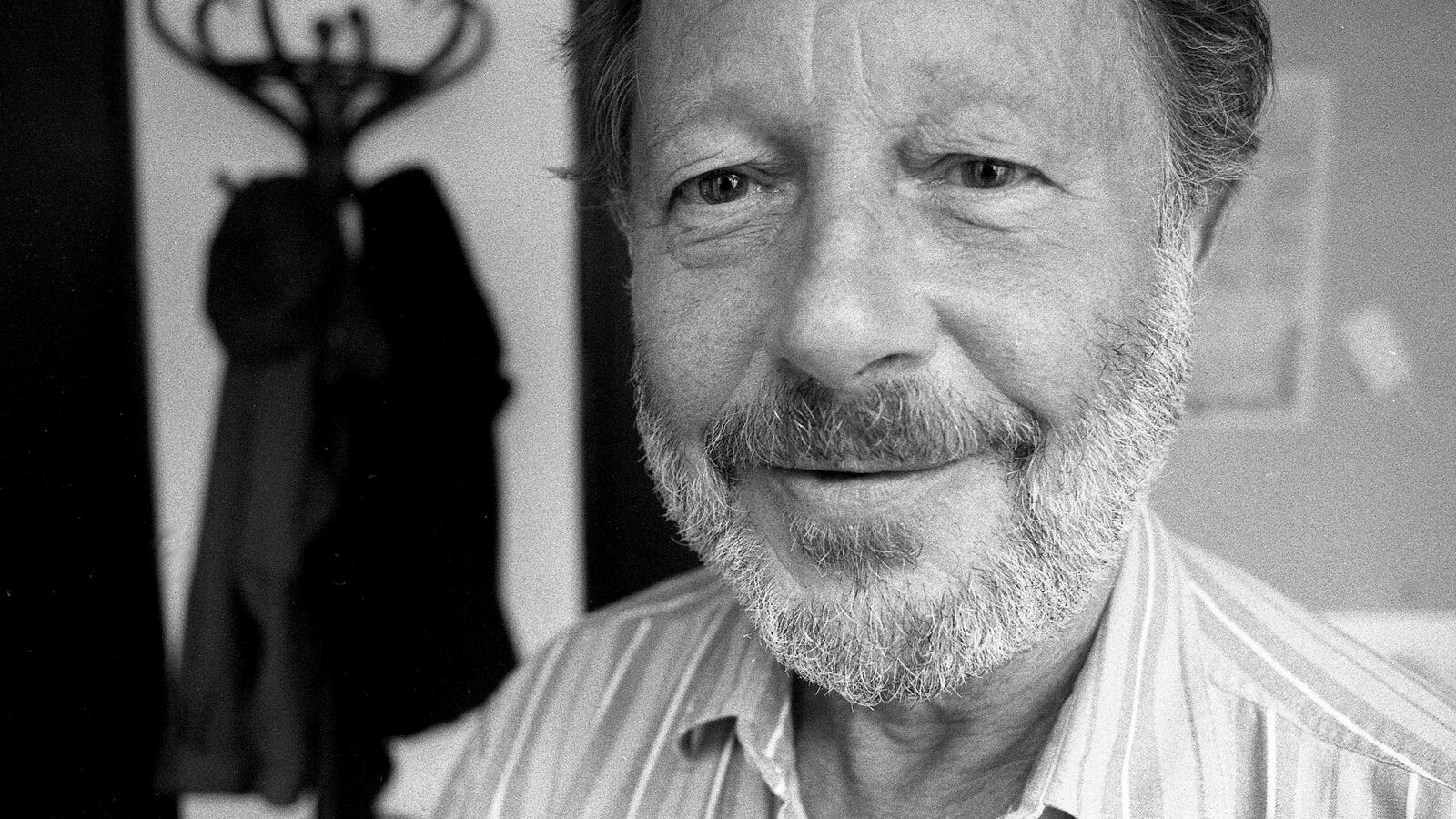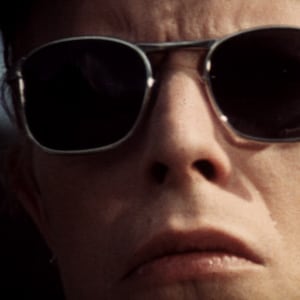OK, let’s start with that sex scene.
Since its debut in 1973, Don’t Look Now has contended with the rumor that the sex scene between Donald Sutherland and Julie Christie is not simulated, that the stars were in fact actually having sex. No matter how many times people associated with the film deny it (“The takes were 15 seconds long, maximum,” Sutherland has said), people want to believe that the sex was real. And why not? This side of porn, very few movies more convincingly portray two people fucking.
The truth, in this case, is even more impressive. What you see on the screen is not real. It’s the result of acting, camera work, editing, and, most important, directing. The late Nicolas Roeg, the man who made that film, knew enough about manipulating film to be able to shoot a sex scene that is not only not boring but seems so real that we can’t quite accept that mere art could be so convincing.
Roeg made movies that could only have been movies. “Movies are not scripts,” he once said. “Movies are films; they’re not books, they’re not the theater. It’s a completely different discipline, it exists on its own. I would say that the beauty of it is it’s not the theater, it’s not done over again. It’s done in bits and pieces. Things are happening which you can’t get again.” Maybe this is not true of all film, but it’s certainly true of Roeg, who’s worth paying attention to because he directed two or three of the best movies ever made.
True, he often relied on existing source material for his plots. Don’t Look Now is based on a short story of the same name by Daphne Du Maurier (another singularly clever, dark-minded Brit), and The Witches is based on a Roald Dahl book for children. (I can’t think of two films by any other director that could be more different and yet so equally terrifying.) But when you watch a Roeg movie, you forget all that. Instead you’re absorbed by the questions that occupied Roeg all his life: How does this story work as a movie? How can this story be told in ways that only movies can tell a story? With naked desire, he urgently courted your attention as a viewer, and most often he got it.
All of Roeg’s movies are abrasive and hard to watch, with time being chopped and rearranged, and with the camera peering in too close or not close enough: You strain to keep up with these people, often spending the whole movie trying to decide what to make of them, who’s good, or bad, or crazy or not. The ’70s were a heady time for movie makers, before Rocky and E.T. and the rest of the formula/franchise films re-cemented the hold of traditional filmmaking, and no one exploited that window of opportunity with more daring than Roeg, who died of natural causes November 23 at the age of 90.
Born in 1928, he went to work in the British film industry shortly after World War II. He started as a film editing apprentice and then became a cinematographer. He began working on A-list films in the early ’60s, when he shot second-unit footage for Lawrence of Arabia. David Lean must have liked what Roeg did, because he hired him again as principal photographer on Doctor Zhivago, but they quarreled about everything, and two weeks into shooting Lean replaced him—and don’t you wish you could have overheard those fights?
He wasn’t fired by several excellent directors (Francois Truffaut, John Schlesinger, Richard Lester) in the mid ’60s, and in 1968, after two decades in the movie business, he got his first chance to direct (or co-direct, with screenwriter Donald Cammell), on Performance, which also contained Mick Jagger’s debut as an actor, the first but not the last time Roeg would employ musicians (David Bowie, Art Garfunkel) in starring roles.
Performance is a messy, visceral, everything-but-the-kitchen-sink kind of movie. The filmmakers worked with a sort of panicked abandon, as though convinced that they’d never be allowed to make another film after this one, so they just went for broke in every scene. It begins as a fairly conventional gangster picture with a heaping helping of that good old ultraviolence, then devolves into a strange emotional tug of war between a mobster on the run (James Fox) and the rock star (Jagger) from whom he’s renting a basement apartment in which to hide out. It wouldn’t be a pleasant movie even with a happier ending, but it’s weirdly hypnotic: For two hours, you’re both unsettled and enchanted.
Roeg’s subsequent movies became more disciplined, but they all have the same effect: you are compelled to watch something you’re not at all sure you want to see.
Roeg didn’t go to film school, and he never worried much about formalities like story arcs or even logic. But because he’d come up through the ranks, he knew how how to talk to his cinematographers and editors, so he knew how to shape a film, from beginning to end, to suit his own vision. “It’s really very simple,” he once said. “I just mind my own business and stay as far away from the actors as possible.” A little glib, but true enough: The acting in his movies is all over the place.
It’s hard to say which of his films is his best, because Performance, say, is so wildly different from Walkabout, and Walkabout is nothing like Don’t Look Now or The Man Who Fell to Earth. (For those who like to hunt for themes, they are all about displaced people—and one displaced alien—and in most of them there’s the problem of too much water or not enough, but all that’s merely the friction that sparks the stories on their way.)
If forced to choose, I would go with Don’t Look Now, the story of a couple trying to piece life back together after the drowning of their young daughter, the tragedy that opens the film. Fate, the supernatural, the city of Venice, and a serial killing dwarf all conspire against these two luckless people, beautifully played by Christie and Sutherland. It’s an immeasurably sad story—most Roeg movies are—but the way Roeg uses film to give us that story is so supple (you could write a dissertation on the way he employs the color red, or the look and sound of water, or the clammy claustrophobia of Venice) that the total effect is not despair but a kind of morbid exhilaration. You watch Don’t Look Now with the same monkey-brain absorption that you watch a cheesy horror movie: You know what’s going to happen, more or less, but you’re sucked in anyway.
The difference between the average horror movie and Don’t Look Now is that Roeg doesn’t just scare you and send you home. In fact, the full impact of the movie is likely to hit you days or weeks after you saw it, like some time-release drug. There are few if any movies that more deftly explore the deranging aspects of grief, that awful territory in which everything about life is called into question. The genius of the movie is that it spares us any pop psych explanations. As Roeg put it, “People usually arrive to see something with an open mind. I want to make them feel something emotionally, but not by planning how to get them there. That would almost be like the communist days when newspapers told people what to think—when there was no competition with Pravda.”
Don’t Look Now doesn’t pretend to wisdom. If it makes any argument, it is that wisdom eludes us in our moments of greatest tragedy. As well as it can, the movie allows us to watch two people struggling to cope with loss and uncertainty—and in the context of a horror movie—and leaves it at that. It’s truth is that we are always searching for clarity that is not always attainable but that it’s the searching that makes us human. Don’t Look Now takes us down some very dark alleys of the soul, but in its way, it’s a very big-hearted movie.
First and always, and by his own admission, Roeg was a great believer in what he called “the showmanship thing, the fairground barker, come-see-what's-inside aspect of filmmaking.” He wanted to get you in the tent, keep you in your seat, and then make you come back for more. If he was not always popular at the box office or with critics, he has been vindicated by time. Walkabout, Don’t Look Now, and The Man Who Fell to Earth routinely wind up on lists of the best movies ever made. They aren’t slick. They’re not always easy to watch. They are simply unforgettable.






